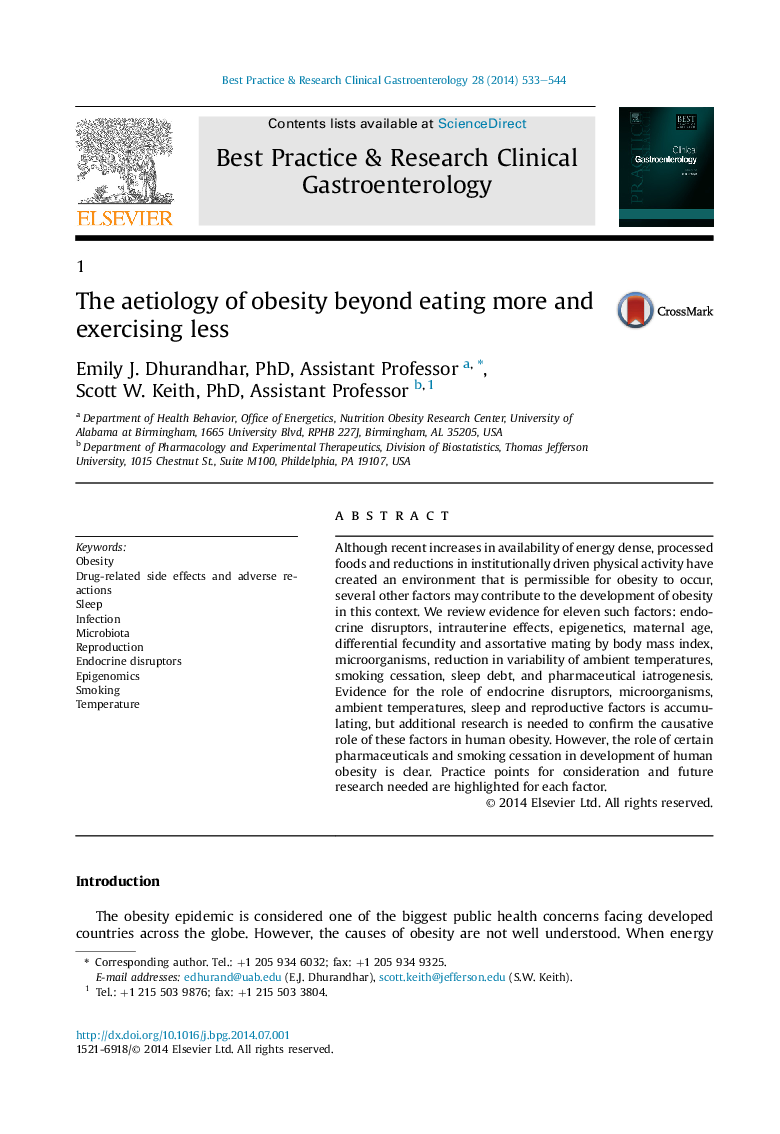| Article ID | Journal | Published Year | Pages | File Type |
|---|---|---|---|---|
| 3254014 | Best Practice & Research Clinical Gastroenterology | 2014 | 12 Pages |
Although recent increases in availability of energy dense, processed foods and reductions in institutionally driven physical activity have created an environment that is permissible for obesity to occur, several other factors may contribute to the development of obesity in this context. We review evidence for eleven such factors: endocrine disruptors, intrauterine effects, epigenetics, maternal age, differential fecundity and assortative mating by body mass index, microorganisms, reduction in variability of ambient temperatures, smoking cessation, sleep debt, and pharmaceutical iatrogenesis. Evidence for the role of endocrine disruptors, microorganisms, ambient temperatures, sleep and reproductive factors is accumulating, but additional research is needed to confirm the causative role of these factors in human obesity. However, the role of certain pharmaceuticals and smoking cessation in development of human obesity is clear. Practice points for consideration and future research needed are highlighted for each factor.
